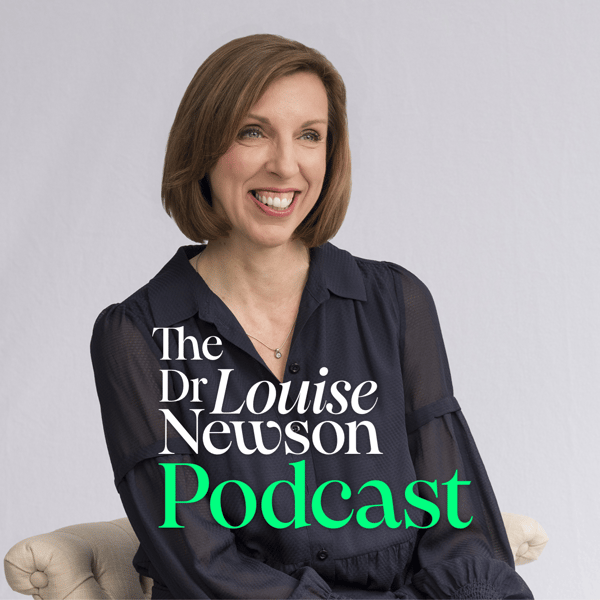125 - ‘Yes, I’ve had breast cancer but now I need help with the menopause‘ with Dr Sarah Ball
The Dr Louise Newson Podcast
Dr Louise Newson
4.8 • 798 Ratings
🗓️ 9 November 2021
⏱️ 32 minutes
🧾️ Download transcript
Summary
Transcript
Click on a timestamp to play from that location
| 0:00.0 | Hello, I'm Dr. Louise Newsome and welcome to my podcast. I'm a GP and menopause specialist and I run the Newsome Health Menopause and Wellbeing Centre here in Stratford-Bron-Avon. I'm also the founder of the Menopause charity and the Menopause support app called Balance. |
| 0:29.9 | On the podcast, I will be joined each week by an exciting guest to help provide evidence-based |
| 0:36.5 | information and advice about both the perimenopause and the |
| 0:40.9 | menopause. |
| 0:45.8 | So today on the podcast, I'm really thrilled because this person I know well and I work with her, |
| 0:53.0 | but this is her fourth appearance on the podcast, |
| 0:56.0 | which I think is a record. So Sarah Ball is one of our doctors who works with us, and I'm really |
| 1:02.0 | pleased that she's joined me again. So thanks, Sarah. Thank you, Louise. It's always a pleasure. |
| 1:07.4 | So Sarah and I met a few years ago, actually. I've gone to give a talk for some healthcare professionals. Actually with my husband, we were doing a sort of Mr and Mrs event. And there weren't many people there because it was Wimbledon and it was a really nice hot day. And Sarah was there and her eyes were just a light. She was just nodding. Everything I said about the menopause, she was like, yes, I really want to do more work. |
| 1:30.0 | So when we went from the clinic, she was our first real doctor that came, |
| 1:34.3 | not that we're not real doctors, but she was the first doctor that I came and said, |
| 1:39.1 | could you come and work with us? |
| 1:40.2 | And it's been great, actually. |
| 1:41.6 | The rest is history, as I say, isn't it? |
| 1:43.5 | Yeah, it's been great actually and the rest is history as they say isn't it but yeah it's been amazing and so and I are both also very honest and open that there is so much that we didn't know |
| 1:51.1 | when we were with our patients over the last 15 20 years of being doctors and so many women that |
| 1:56.6 | we've neglected actually and I think the more so and I talk about the menopause and we talk with |
| 2:01.4 | others obviously the more we realize there are certain groups of women that are probably more |
| 2:06.5 | neglected than others wouldn't you agree sir yeah i think women generally are neglected when it comes to |
| 2:11.7 | the menopause but there is a lot of women who really struggle particularly not heard and one of the groups of women that we see and speak to more and of women who really struggle, particularly not heard. And one of the groups of women that |
| 2:19.5 | we see and speak to more and more are women who've had breast cancer. So we have spoken on the |
| 2:25.5 | podcast before about breast cancer, but actually we're going to just talk about some research that |
... |
Please login to see the full transcript.
Disclaimer: The podcast and artwork embedded on this page are from Dr Louise Newson, and are the property of its owner and not affiliated with or endorsed by Tapesearch.
Generated transcripts are the property of Dr Louise Newson and are distributed freely under the Fair Use doctrine. Transcripts generated by Tapesearch are not guaranteed to be accurate.
Copyright © Tapesearch 2025.

